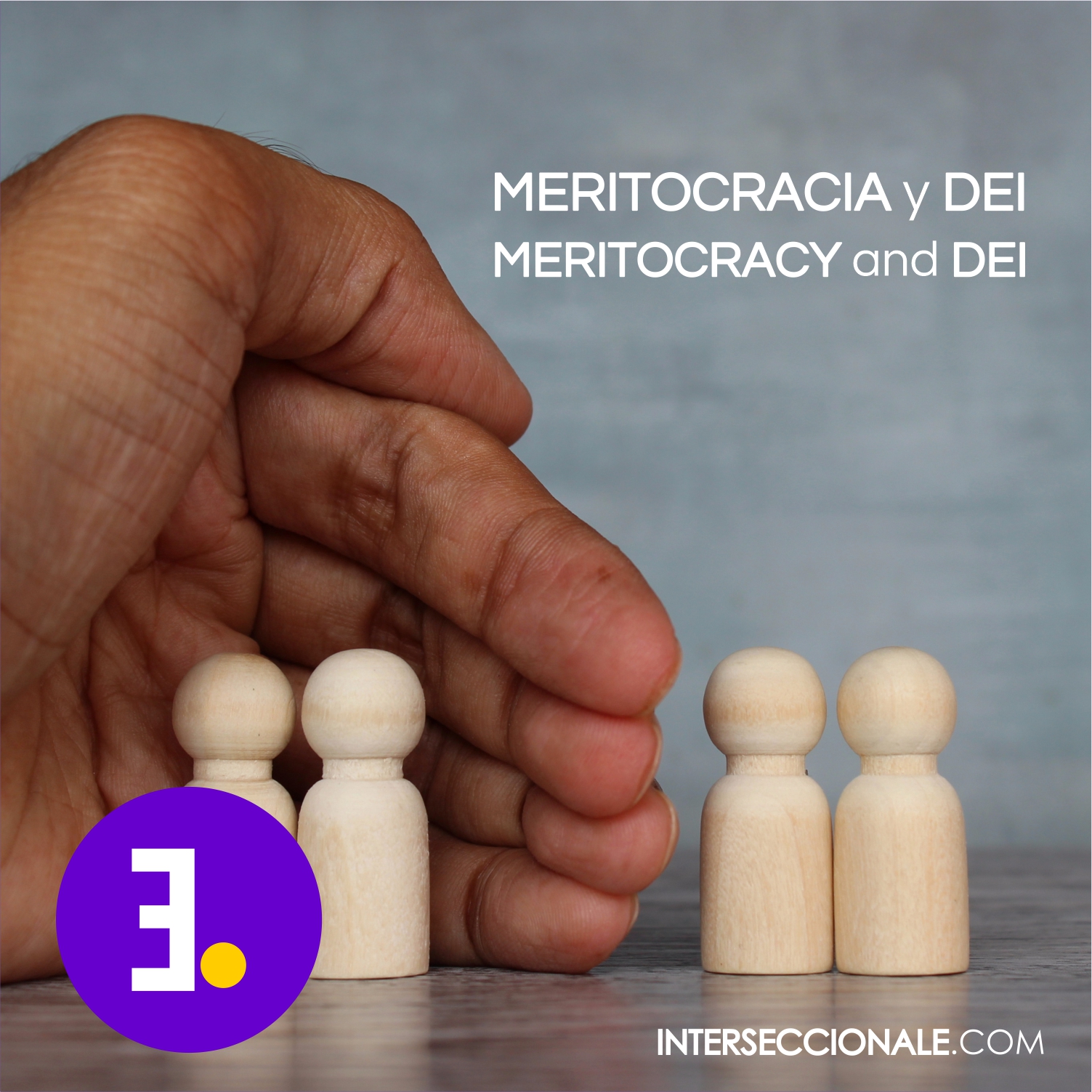Meritocracy only makes sense when equitable policies and practices are established that prioritize and ensure access to information, opportunities, resources, and support for all team members. Otherwise, it becomes mere rhetoric that fails to recognize diversity and perpetuates the belief that success depends solely on individual effort. This serves only to justify and perpetuate inequalities, benefiting those who already have advantages. Meritocracy turns out to be an illusion and a false promise that does not represent the shared reality of individuals belonging to marginalized groups.
In the context of Diversity, Equity, and Inclusion (DEI), it is crucial to recognize that meritocracy cannot exist in a vacuum. For organizations to truly promote equal opportunities and equitable development for all their members, they need to go beyond mere statements and adopt concrete actions. These active measures involve eliminating systemic barriers, providing access to professional development programs, and creating an inclusive work environment where all voices are valued.
However, the complexity of equality deepens when we consider intersectionality. This recognizes that individuals have multiple characteristics that make up their identity, such as gender, sexual orientation, or disability, and that these characteristics can interact to create unique experiences of discrimination and disadvantage. In an intersectional approach, we cannot treat all individuals the same way because their experiences and challenges vary based on their multiple identities.
Therefore, meritocracy and intersectionality must coexist in a truly inclusive environment. This means that we must recognize and address not only systemic inequalities but also specific inequalities that individuals face based on their intersections of life. This requires a more personalized and careful approach in promoting merit and equal opportunities, taking into account the diverse experiences of team members.

#Meritocracy #DEI #Diversity #Equity #Inclusion #EqualOpportunity #Intersectionality #InclusiveWorkplace #SystemicInequality #ChangeForEquality #IndividualEffort #InclusiveLeadership #EmpowerDiversity #MeritPromotion #DiverseExperiences